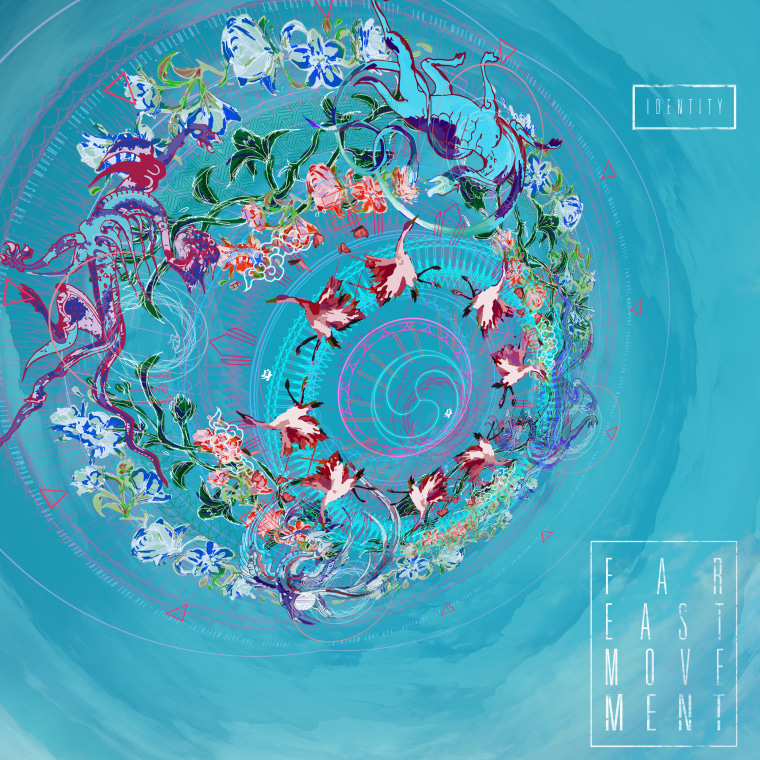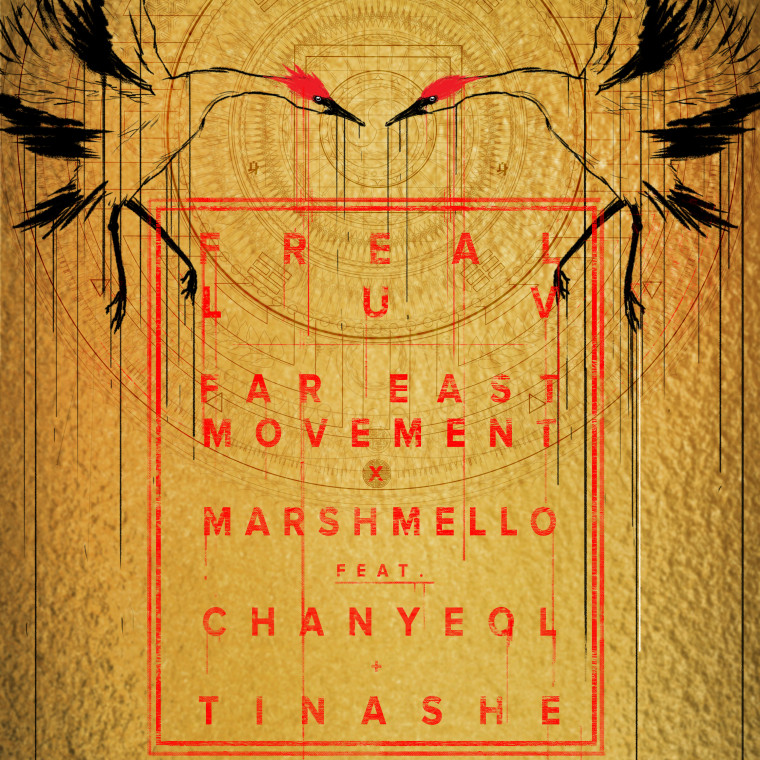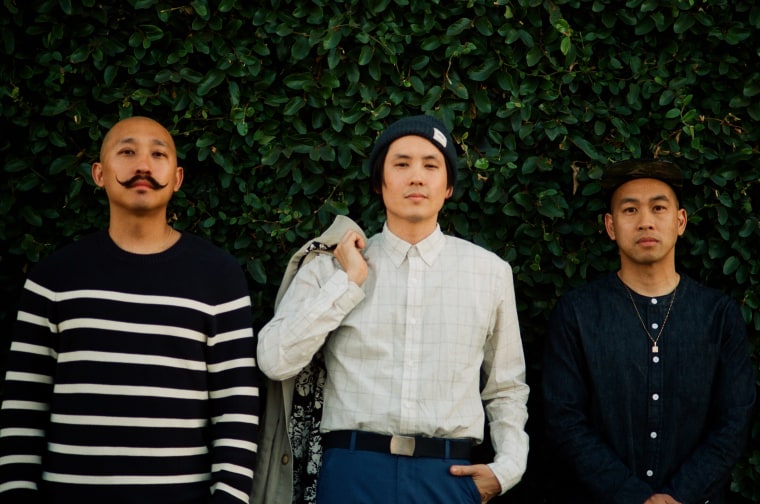After they released their last album, "Dirty Bass," in 2012, LA-based hip-hop group Far East Movement took some time off to focus on their identity.
“There were a lot of things we were seeing in the industry that we were going through that kind of got us a little discouraged,” Kevin "Kev Nish" Nishimura, one of the group's members, told NBC News from Seoul, South Korea. “I could say maybe there was an identity crisis where we really didn’t want to make music anymore."
“There was an identity crisis in the sense that you’re from the U.S., and you’re 100 percent American, but you don’t necessarily feel that way, and you don’t feel that people see you that way.”
It was at times difficult to ignore some of the racially charged comments on social media, Nishimura said, and at times, Far East Movement — which consists of James "Prohgress" Roh, Virman "DJ Virman" Coquia, and Nishimura and initially topped the Billboard charts in 2010 with "Like a G6" — were also asked to consider abbreviating or changing their name or putting on glasses for marketing purposes.
“There was an identity crisis in the sense that you’re from the U.S., and you’re 100 percent American, but you don’t necessarily feel that way, and you don’t feel that people see you that way,” Nishimura said. “You get execs that say, ‘you’re too Asian,’ how do we make this less Asian?’”
Somewhat disenchanted by the industry, Far East Movement decided to take a break and travel to Asia, where they began conceptualizing “Identity,” an album that bridges the gap between Asia and the United States. The album was a four-year process and is scheduled to release worldwide on Friday, Oct. 21.

While in Asia, Far East Movement — which initially formed in Koreatown, Los Angeles, in 2003 — started producing for Japanese, Chinese, and Korean artists and began learning more about the region's music scene.
Producing for artists in Asia helped Far East Movement gain a deeper appreciation, respect, and understanding of the scene and the culture, Nishimura said. It was vital in helping them reconnect with their identity and focus on a collaborative, global effort to include unifying sounds on their new record.
“Talent is global," Nishimura said. "There’s no fear. The top artists here [in Asia] are amazing just like the top artists in the U.S. There’s no borders on talent.”
Much of that talent from Asia, as well as from the United States, is featured on "Identity," which features collaboration with American rapper Soulja Boy, South Korean rapper Loco, singer-songwriter Macy Gray, Jay Park, Tiffany from K-Pop group Girls’ Generation, and others.
“Freal Luv” — the first single expected to be released from the 11-track album — features collaborations with producer Marshmello, rapper Chanyeol from K-Pop group EXO, and singer-songwriter Tinashe Kachingwe.
“When we made the record, to us it felt like something different," Nishimura said. "It felt like something like Far East Movement, and it was also really positive and we wanted to make sure the first record we put out felt positive and a concept that no matter what city they’re in [they] can relate to themselves, which is love, for real love.”
For "Freal Luv," the group first conceptualized Marshmello and then worked with EXO’s Chanyeol, furthering developing it before flying to Los Angeles and working with Kachingwe, Nishimura said.
“I think that overall it really represented the identity of what we’re trying to accomplish," he said. "Overall it’s a lot of different cultures wrapped in one — a lot of different personalities.”

"Identity" is the first album released by Far East Movement’s own company, Transparent Agency, which also manages eight other artists.
“We really appreciate the support...this is a new step in our lives," Nishimura said. "We’ve always been artists, but having our own music company and bringing the next generation of artists is really what we want to do professionally.”
“Umbrella” — one of the tracks off the new album — features K-Pop group Sistar’s Hyolyn and Gill Chang, and its music video was shot in Alhambra, California, not far from where the group played one of its very first local gigs in Koreatown's Cafe Bleu, Nishimura said.
“Koreatown has definitely been our backbone ... every time we would poster and do events, Koreatown has always been supportive … It’s cool because everybody is one phone call away,” Nishimura said.
Nishimura said the collaboration for “Identity” was a slow and challenging process that involved building and nurturing relationships with artists.
“It was a challenge because it’s not a passive process," Nishimura said. "It’s not like you send an email and get a collab. It takes cultural awareness in a sense of respect and understanding that these artists are big, not treating it passively.”
“We’re going to keep going and bridging that gap and doing what we’re doing with our name: Far East Movement It starts from the West but our heritage is East and hopefully it won’t be a talking point — it will be regular music.”
Nishimura said there were times when they would fly back and forth for a few one-hour sessions and fly back to LA to ensure that the sounds didn’t seem forced, but instead, natural.
“We wanted the artists to be proud of it and not just feel like they were getting another Western artist getting [them] on a track," Nishimura said. "We really wanted them to vibe.”
Nishimura said the group believes that the tracks on “Identity” are songs that anyone can relate to independent of their race or place of birth.
“If we can put artists from Asia and artists from the U.S. and just make a song that anyone in the world can vibe to, and that’s I think all for us — that truly defines the Far East Movement identity,” said Nishimura said.
“We’re going to keep going and bridging that gap and doing what we’re doing with our name: Far East Movement," Nishimura continued. "It starts from the West but our heritage is East and hopefully it won’t be a talking point — it will be regular music.”
Follow NBC Asian America on Facebook, Twitter, Instagram, and Tumblr.
